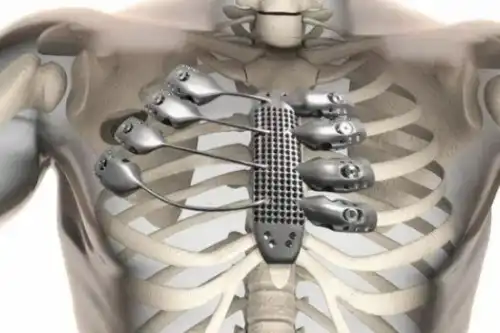In the vast arena of biomedicine, titanium has long played a crucial role due to its unique physical and chemical properties. In particular, the two classic titanium alloys, Ti-6Al-4V and Ti-6Al-4VELI, were once the materials of choice for implants. However, with the deepening of scientific research, people gradually realize that the vanadium element in these alloys may pose a potential threat to the human body, and although no authority has yet explicitly banned their use, the application of the Ti-6Al-4V series of alloys in the field of biomedicine has shown a declining trend.

In the face of this challenge, research teams around the world have devoted themselves to the research and development of new medical titanium alloys. Swiss scientists took the lead in making a breakthrough and successfully developed the Ti-6Al-7Nb alloy, which has been successfully applied to clinical applications. In China, Beijing Nonferrous Metals Research Institute and Baoji Nonferrous Metals Processing Plant of the scientific research team hand in hand, jointly developed a vanadium-free medical titanium alloy, the results not only passed the rigorous medical clinical trials but also 2001 won the first prize in the China Nonferrous Metals Industry Science and Technology Award, marking China's titanium alloys in the field of medical made significant progress.
In addition, Germany, India, and other countries of the scientific research team are not willing to lag and have developed a series of new medical titanium alloys such as Ti-5Al-2.5Fe, Ti-5Al-1.5B, and Ti-15Mo-5Zr-3Al. The emergence of these alloys has not only enriched the choice of materials in the biomedical field but also provided patients with more diversified treatment options.
It is worth mentioning that, with the ever-increasing requirements for biocompatibility, researchers have begun to pay more attention to the impact of alloying elements on the human body. Research in the 1990s found that aluminum may not only affect the normal function of the nervous system but also has a certain correlation with Alzheimer's disease. Therefore, the development of non-toxic, biocompatible new titanium alloys has become a top priority.
Against this background, research teams from the United States, Japan, and other countries are once again at the forefront, and they have successfully developed a series of new β-titanium alloys using non-toxic elements such as molybdenum, niobium, tantalum, and zirconium. These alloys not only have excellent biocompatibility but also have a low modulus of elasticity, which is much closer to that of dense human bone, thus greatly improving the stability and comfort of implants.
In summary, the use of titanium in biomedical applications is undergoing unprecedented innovation and change. With the continuous emergence of new medical titanium alloys and the continuous progress of technology, we have reason to believe that titanium metal will play a more important role in the future biomedical field, contributing more power to the cause of human health.











